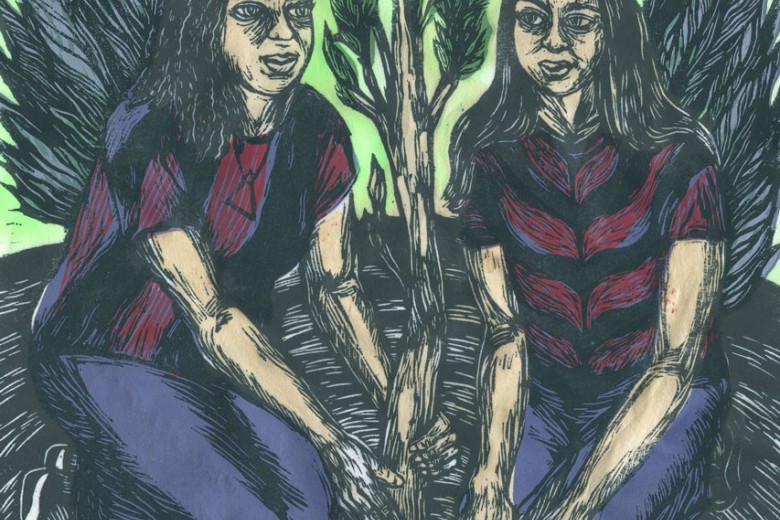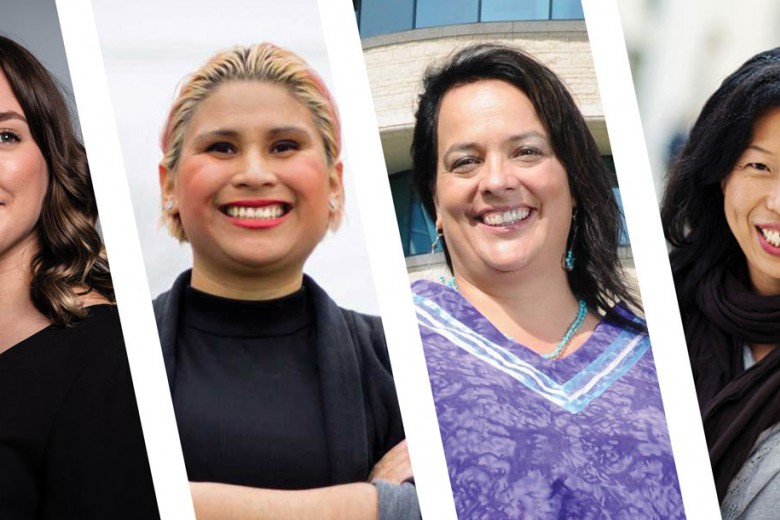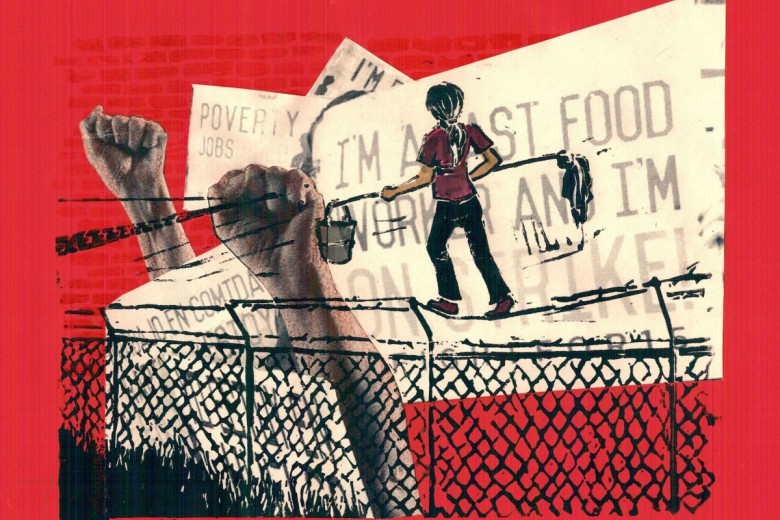
Hondurans’ resistance to the June 2009 coup has shown spirit and determination, with thousands of people resisting the theft of their democracy despite curfews, cops and targeted killings. The roots of this resistance run deep, anchored in organizations like COHAPAZ, the Honduran Committee for Peace Action.
COHAPAZ, a grassroots social justice organization, is comprised of an intricate network of militant women in the communities surrounding the capital, Tegucigalpa, where they have been organizing for over 30 years. Their mandate is to “fight poverty and create justice” in Honduras. What that immense task looks like on the ground is a multi-generational network of mostly women activists, a vibrant urban agriculture movement and frequent popular education workshops. They regularly organize popular assemblies, demonstrations and ad hoc workshops in these materially poor communities where even access to clean water is a political struggle.
In 2006, when I was living in Tegucigalpa, the women of COHAPAZ were facilitating weekly workshops on water conservation, small-space gardening, composting, and the perils of the Central America Free Trade Agreement (CAFTA), which was about to be signed between Honduras and the U.S. I was struck by the distinct, steady feminism of the group’s four main coordinators — Doña Blanca, Doña Candida, Doña Hilda and Doña Marigsa. They are all between 65 and 80 years of age and have been politically active for most of their lives.
The coordinators of COHAPAZ see community organizing as a means of taking control over their own lives and challenging systemic inequality. “Community organizing is crucial to resistance” they wrote in a collective statement in January of this year. “It helps communities recognize their rights, and especially the rights of women and children.” The Doñas explain that by building solidarity within marginalized communities around Tegucigalpa, they are better able to identify and denounce human rights violations. Their movement becomes what they call a “mechanism of protection.”
The COHAPAZ meeting spot is attached to a free medical clinic off a curved street, only notable because there are frequently people lined up outside with kids and babies in tow. The clinic is run by Dr. Juan Almendares, a long-time human rights activist, who works tirelessly to offer medical consultations and keep the clinic running. He is a long-time supporter of COHAPAZ and sister organization Movimiento Madre Tierra (MMT). MMT is supported by Friends of the Earth International, and while their mandate overlaps with that of COHAPAZ, with a focus on social and environmental justice in Honduras, MMT is active nation-wide, working with rural communities affected by the mining industry and large-scale agricultural development.
When I asked Dr. Almendares about the legacy of COHAPAZ, he explained how instrumental these grassroots women’s organizations have been in Honduran human rights movements. “The women have learned a lot about natural medicines, first aid, and birthing through their community organizing.” Pursuing health may not necessarily seem revolutionary, but he says, “health is directly linked with the ability of these women to participate in political action that benefits their communities.”
Honduras is considered one of the poorest countries in the Western hemisphere, second only to Haiti. Over 70 per cent of the population lives below the poverty line, and the country relies heavily on remittances from Hondurans abroad; these remittances comprise the bulk of the country’s GDP. Accurate measures of how many people participate in Honduras’ informal economy are hard to come by, but on the denuded hillsides where the women live and work, stable jobs are rare.
One day, as I walked with Doña Blanca along the dusty streets of her colonia (suburb) of Bella Vista, she filled me in on the neighbours’ gossip. When I asked her why there were so many women around, but so few men, I came to understand the phrase “se fue a los estados” a phrase I would often hear repeated. Someone in almost every household had “left for the States” increasing the need for the women to establish strong networks of mutual aid and economic self-sufficiency.
This was before the 2009 coup.
The military removal of Honduran President Manuel Zelaya was a flashback to the Latin America of the Cold War era. On the morning of June 28, when Hondurans were preparing to vote on the formation of a constituent assembly to rewrite the country’s constitution that had been instated in 1982 with heavy U.S. influence, over 100 military men swept into Zelaya’s home and put him on a plane to Costa Rica.
Immediately, nation-wide mobilizations and a general strike ensued, precipitating what became known as la Resistencia. In the face of foreign interference and a new administration backed by the Honduran military, the persistence of community-based resistance is even more remarkable. Dr. Almendares says this is in part due to groups like COHAPAZ: after years of organizing, they know how to be savvy and resourceful in volatile contexts.
However, state repression in Honduras has increased dramatically since last summer, adding a new dimension to COHAPAZ’s work. A January 2010 declaration from the Washington-based Center of Economic and Policy Research states that “the dictatorship has committed an array of human rights abuses including killings, beatings of demonstrators, detentions of hundreds of people, and attacks on media outlets.”
According to COHAPAZ, the terror created by the coup regime permeates society — everyone knows of someone who has been assaulted, detained or assassinated. “Still” the elderly women tell me, “despite the repression, our popular education workshops have continued and the majority of women in our communities are voluntarily participating in the resistance.” Since last June, they have focused on making sure their fellow compañeras are well-equipped with the knowledge and health needed to ensure a vigorous presence in the resistance.
Furthermore, they say, “We are more united than ever before.”





_780_520_90_s_c1.jpg)
